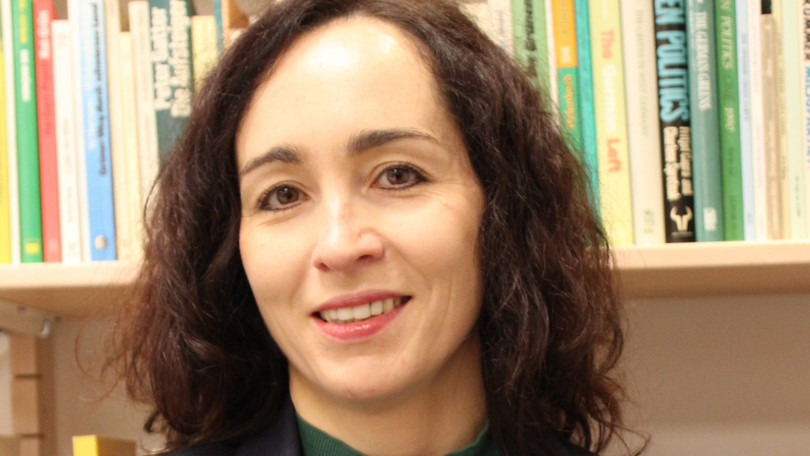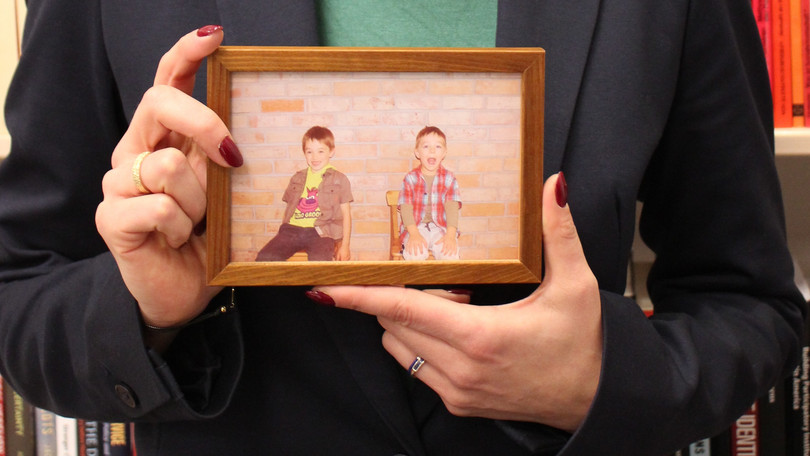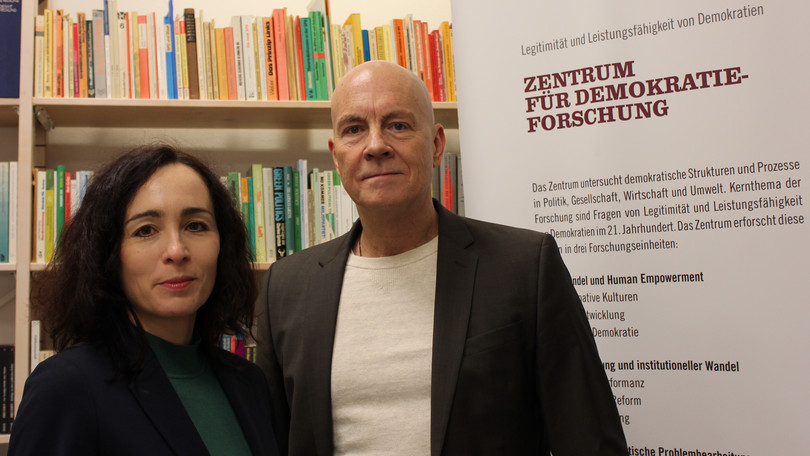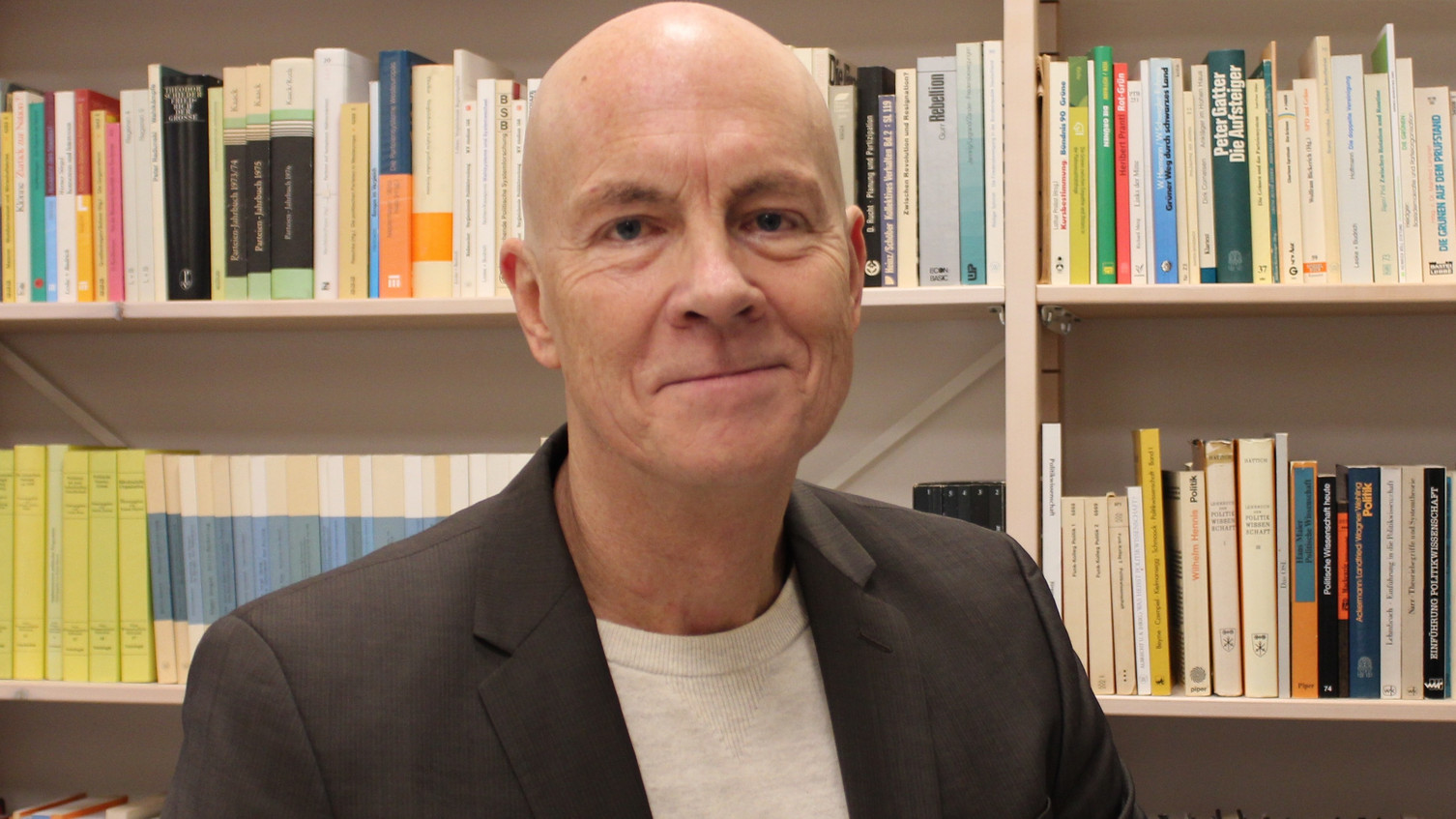What motivates people to get involved in politics or society? And what differences arise between the genders in the process? The research interests of Prof Dr Agnieszka Turska-Kawa from Poland and Prof Dr Christian Welzel from Leuphana overlap on questions such as these. With the help of the visiting scholars program, Turska-Kawa and Welzel are intensifying their scientific exchange.
Research is usually considered to be a distant process, with important findings being put into practice by others. But sometimes research results lead scientists to change the direction of their work, thereby also helping their test subjects. This was also the case with Prof Dr Agnieszka Turska-Kawa. In a research project that started in 2022, the political scientist interviewed 500 senior citizens in Poland about their motivation to get involved in socio-political issues. The answers were sobering: ‘Most have problems with their self-confidence and their sense of self-efficacy. They do not engage in public life but instead withdraw into their private spheres,’ says Turska-Kawa, explaining the behaviour of many Polish women over 65.
In order to research the background and get senior citizens out of their comfort zone, the professor of political science at the University of Silesia in Katowice (Poland) founded the Research Center of Social Activation of Seniors: ‘We aim to show senior citizens that it is worthwhile to get involved and to cooperate with others,’ explains Turska-Kawa. She offers workshops through her research centre to achieve this goal. The insights gained from these events in turn enrich her scientific work.
Turska-Kawa is not only a political scientist. She also has a degree in psychology. She combines both subjects in her research. Thus works in a similarly interdisciplinary way to Prof Dr Christian Welzel from Leuphana. The two met for the first time in March 2023 at the kick-off event for the TrueDem project in Bratislava (Slovakia): ‘We immediately discovered overlaps and complementary interests in various scientific issues,’ recalls Welzel. The Professor of political culture research adds: ‘Agnieszka comes from political psychology. I myself conduct research on values, where many concepts from the social sciences and political psychology are applied on a daily basis. We immediately had a common approach.’
Since then, the two have maintained active scientific exchange. This works even better when two researchers on site can work together on projects. Christian Welzel suggested that Agnieszka Turska-Kawa apply for the visiting scholars program of the Leuphana Office for Equal Opportunities. Turska-Kawa started in December 2024: ‘And now we have various scientific publications in the pipeline’, says Welzel, who heads the Institute of Political Science and the Center for the Study of Democracy (CSD) at Leuphana. He has been a member of the German National Academy of Sciences Leopoldina since 2015.
In line with the aim of the visiting scholars program to provide impetus for interdisciplinary gender research and intersectional perspectives, Agnieszka Turska-Kawa is addressing the following topic: she is researching how public engagement among senior citizens can be initiated and supported. So far, she says, researchers worldwide have mostly focused on what hinders women in their professional and personal development: ‘That’s all been established. Now we are focusing on how we can empower them.’ Women are the larger target group among senior citizens. ‘They are more trapped in their environment, their families, friends, neighbourhood.’ It is important to “nudge” them into social life, because they are much more aware of their needs and how they can use their strength and knowledge to do something, explains Turska-Kawa.
Regarding the visiting scholars program, she says: ‘Leuphana is a great opportunity for me to develop my research. I present and discuss my ideas and plans in exchanges with the scholars here. In return, I receive feedback from different perspectives.’ Back in her research community in Poland, she brings these perspectives to other scholars. She also finds the differences in scientific culture enriching, for example in assessment and teaching practices. ‘Christian Welzel is an inspiring and challenging scientist. We discuss a lot because we are currently also developing a new research project. There are so many ideas that we develop that a needed more than twenty-four hours’, says Turska-Kawa.
‘It’s just a happy coincidence that we have so much overlap that complements each other. So we are not only working on similar issues, but we also have a similar view of things,’ says Welzel about the joint work. Their different research backgrounds enrich their discussions, creating something greater, adds Welzel. He also emphasises that Agnieszka Turska-Kawa’s research is a good example of the idea of intersectionality, when various disadvantages come together – in this case, being older and female: ‘This is something we have been missing so far, because Agnieszka and her team activate people and encourage them to take very practical action, that is, to implement the research into real life. This is a very important addition for our institute, because none of us has done anything in this direction before,’ emphasises Christian Welzel.
Agnieszka Turska-Kawa brought a photo of her two sons with her to the interview. She was given this photo more than ten years ago when she became deputy director of the Institute of Political Science at the University of Silesia. Since then, it has accompanied her on all her professional journeys: ‘Even when I’m in the thick of the busiest work, just looking at it makes me pause and smile.’





